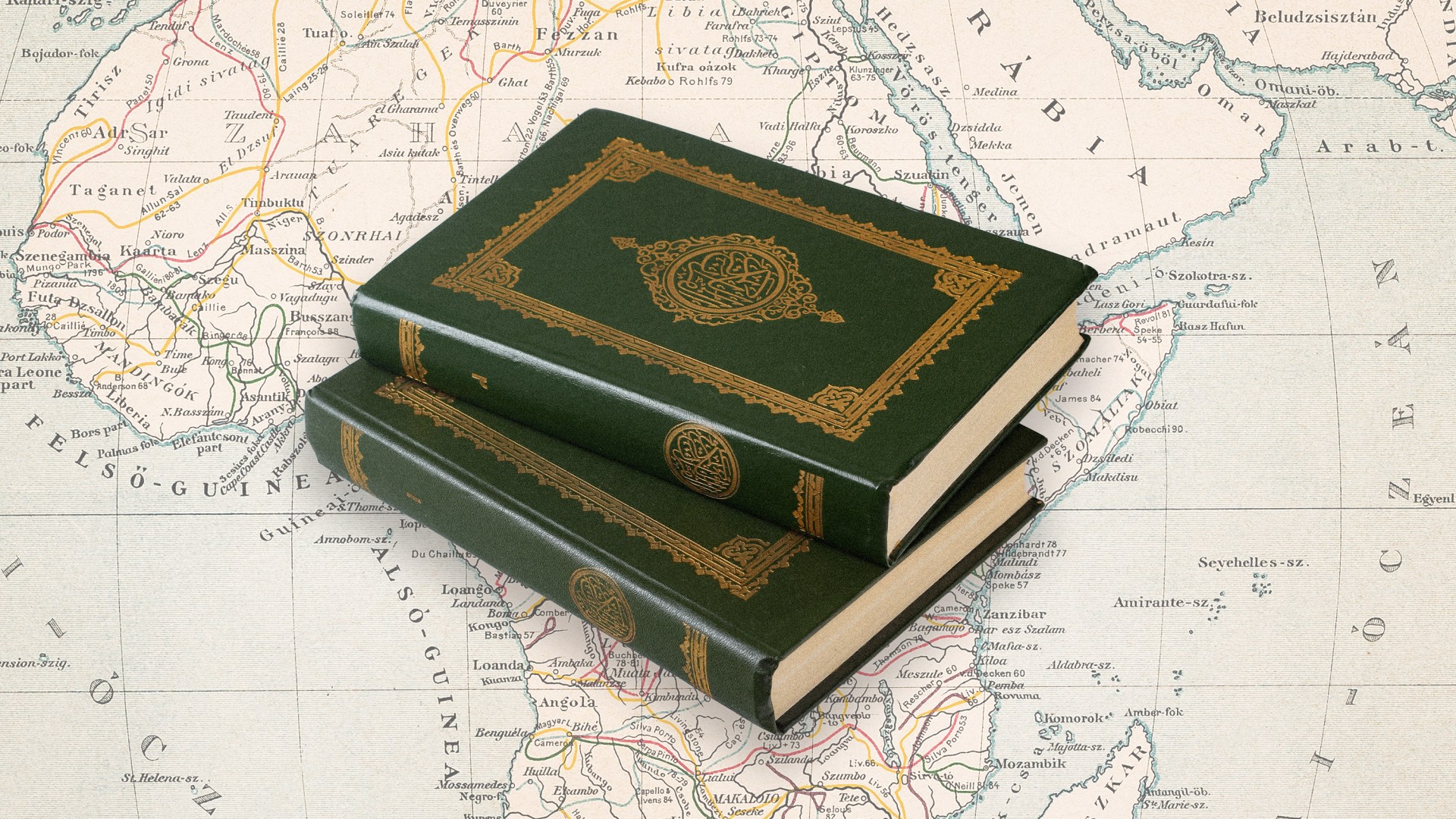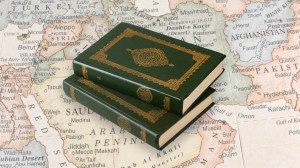In this series

Scholarship on Christian engagement of Islam in Africa is expanding, and many Africans, especially Christian theologians, are taking interest. The growth in scholarship on Islam and its varied expressions in Africa has moved from being focused only on Islam as a religion practiced by Muslims to now including Islam’s relations with human rights, gender, mission, dialogue, and politics.
This list includes books written by scholars and practitioners that are set in different historical contexts. While one book reviewed was written in 1907, the others have been written in a far more recent context. Further, although only one book by a Muslim scholar is listed among these works, Christians hoping to fully understand the state of Islam should also engage in the work of practicing Muslims. Combined, these diverse perspectives can provide an appetite for more studies on the present expression of Islam in Africa, how the past affects or differs from the present, and how the church can develop a relevant understanding.
The Sudan: A Short Compendium of Facts and Figures about the Land of Darkness, by Karl Kumm
This 1907 work delves into the historical dynamics of Islam, traditional African religions, and Christianity in precolonial and colonial northern Nigeria, with broader applicability to African contexts. Authored by Karl Kumm, a European missionary and founder of two mission organizations with a specific focus on Islam in Africa, the work aims to persuade European Christian counterparts of the importance and effectiveness of evangelizing traditional religious communities in Africa.
Kumm counters prevailing perspectives among some European thinkers who considered Islamic civilization as best suited for Africa by drawing on his empirical experiences with radical Islam in Northern Nigeria in the early 20th century. With a compelling case against pro-Islamic viewpoints, Kumm highlights the intense interreligious tensions between radical Islam and traditional religious communities in Africa, dating back to the emergence of revival Islamic movements. He illustrates the historical clash between Islam and traditional religions, citing instances such as Islamic slavery in precolonial Africa and the maltreatment of individuals like Neali, a young girl captured and mistreated by Muslim slave raiders in 1798.
Kumm argues that Islam’s interpretation of Quranic verses and the expansionist example of Muhammad oppose the rights of women and non-Muslims and predicts that these would make Islam hostile to other religions in Nigeria. Significantly, Kumm advocates for Christianity as a more suitable alternative for Africans, emphasizing the need to protect traditional communities from the slavery and maltreatment associated with Islamic radicals. Beyond its historical context, Kumm’s work holds relevance for contemporary discussions on interreligious crises in Northern Nigeria and Africa at large, emphasizing the nuanced understanding of pre-Christian-era scenarios. Additionally, his historical references shed light on the persistent gender-based, social, and economic factors underlying present religious radicalism in Northern Nigeria.
Islamism, Statehood and Human Right: A World of Difference, by Olufemi O. Ilesanmi
The author, a Nigerian theologian and legal expert, delves into the compatibility of Islamic theocratic regimes with human rights, offering a fresh perspective on the impact of sharia law in Northern Nigeria. Focused on the rights of women and religious minorities, Ilesanmi’s research is primarily motivated by his encounters and the experiences of fellow Nigerians with radical Islam in Northern Nigeria, especially following the introduction of sharia in the multireligious context of Nigeria in the 1990s.
Olufemi helpfully expands the scope of his analysis to include Malaysia, Sudan, and Turkey, posing a fundamental question about the compatibility of contemporary Islamic regimes’ theological and political understanding with human rights, as defined in secular (Western) perspectives. Through extensive historical and contemporary references, the author explores instances of Islamist agitation against democratic definitions of human rights, looking closely at Islamic theocracy and sharia and emphasizing the difficulties and implications that the application of sharia’s stipulation on punishment may have in a multireligious context. The book also highlights the clash between Islamic theocracy and the rights of women and religious minorities around the world, showcasing the challenges in applying Islamic law in modern, multicultural contexts and international jurisprudence.
While the research is a valuable resource for readers seeking interdisciplinary insights into law, theology, and human rights, one critique is the strong academic tone, resembling a dissertation, which might limit accessibility for a general audience, including lay practitioners and grassroots religious leaders. Nevertheless, Ilesanmi provides a profound understanding of how to navigate present interreligious tensions, emphasizing the essential need for a genuine desire to understand the “other” for meaningful engagement.
The African Christian and Islam, edited by John Azumah and Lamin Sanneh
This multi-authored, Africa-centric book features 22 academic writers aiming to present an African perspective on Islam and guide theological students and pastors by balancing academic insights with on-the-ground realities.
The book critically examines various facets of Islam in Africa, distinguishing between its radical, political, missionary, lived, and mystic faces and providing a nuanced understanding often overlooked in previous research. It addresses questions arising as Christians navigate their witness in an Islamic context, offering theological and scriptural perspectives.
Specifically, the late Gambian-born scholar Lamin Sanneh delves into the theme of revival and reform in Islam and Christianity in Africa, showing the significance of religious experiences as the main factor behind revival movements both in African Christianity and Islam. To Sanneh, religious experience is therefore an important point to consider regarding Muslim-Christian relations in Africa. Similarly, Ghanaian scholars John Azumah and Abraham Akrong’s paper highlights the importance of certain values in traditional religions and cultures for fostering peace between Islam and Christianity in Africa. Notably, Azumah contends that African existential realities like economic, political, spiritual, and social factors should be considered when understanding Muslim-Christian relational tension in Africa.
Other entries examine the colonial context of African Christian encounters with Islam; the impact of Pentecostalism; country-specific studies on Egypt, Ethiopia, Ghana, Kenya, Senegal, South Africa, Sudan, Tanzania, and Nigeria; and how the Bible should be interpreted and applied in the African Islamic context. Recognizing the misguided attitudes of some African Christians toward Islam, the text advocates for a balanced response, cautioning against extreme anti-Islamic sentiments and naively romanticizing Islam. The authors attribute the growth of jihadism in Africa to a lack of clear understanding in responding to Islam. They argue for informed engagement rather than confrontational polemics.
My Neighbour’s Faith: Islam Explained for African Christians, by John Azumah
Azumah, the founding executive director of The Sanneh Institute, an organization that studies religion in Africa, adopts an approach that seeks to comprehend and engage with Islam not merely as a distant entity but as a religion embraced by his friends and neighbors. His primary goal is to furnish Christians with a valuable resource, facilitating their understanding of Islam and effective interactions with Muslims in their proximity, steering clear of both romanticization and demonization.
Highlighting the historical harmony between Islam and Christianity in various African contexts, Azumah observes a contemporary threat to this harmony, marked by bloodshed, especially in Sudan, Nigeria, and Ivory Coast. Investigating the root causes of these changes, Azumah identifies theological disparities as a significant barrier to harmonious Christian-Muslim relations in Africa. He argues that despite shared similarities, differences in theological matters—particularly the application of sharia—have led to conflicts, notably in Northern Nigeria. Delving into the pro-sharia and anti-sharia perspectives in Nigeria, Azumah advocates for reasoned debate over inflammatory rhetoric as a means to engage and integrate these arguments effectively.
One interesting note is that in this book, Azumah delves into theological factors as the main cause of interreligious tension between Muslims and Christians in Africa. However, in his chapter in The African Christian and Islam (mentioned above), released five years later, he focuses on existential realities as the main cause. Students of Islam and research on interreligious relations may be able to track this evolution and changing dynamics in Azumah’s thoughts. What we can say at this point is that the causes of interreligious crises between Islam and Christianity in Africa cannot be traced to one constant issue, as contexts have significant impact.
The Qur’an: A User’s Guide, by Farid Esack
Farid Esack, a South African progressive and critically reflective Muslim, introduces a six-level taxonomy, categorizing engagement with Islam from devout adherents to those seeking to deconvert Muslims.
The first category in Esack’s taxonomy is the “uncritical lover,” representing ordinary Muslims who wholeheartedly practice Islam without entertaining critical engagement or questioning its tenets. The second, the “scholarly lover,” comprises Muslims who actively formulate evidence and arguments to support their religious convictions. The third, the “critical lover,” demonstrates an affection for Islam while questioning specific aspects without fundamentally doubting its authenticity. The fourth category, the “friend of the lover,” accepts the historical and doctrinal aspects of Islam but doesn’t actively practice the faith. These individuals reside within the sphere of Islam without being full participants. The fifth, the “voyeur,” exhibits a disinterest in Islam but seeks a sympathetic understanding. People in this category lack personal affection for Islam but pursue unbiased scholarship on the religion. The final category, the “polemicist,” describes those who engage with Islam from the perspective of their passion for the Bible or secularism.
The work is valuable in understanding various perspectives that non-Muslim and Muslim scholars have toward Islam and how these views impact the nature of engagement. Esack’s analysis, if widely disseminated, could establish a theoretical foundation for successful interreligious engagement between Muslims and Christians both at scholarly levels and in practice-oriented spaces.
Read our authors’ bio in the series’ lead article, The Best Books for Understanding Islam and Connecting with Your Muslim Neighbors. (Other articles in this special series are listed to the right on desktop or below on mobile.)
















